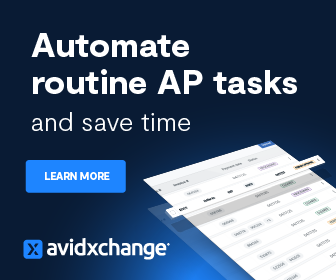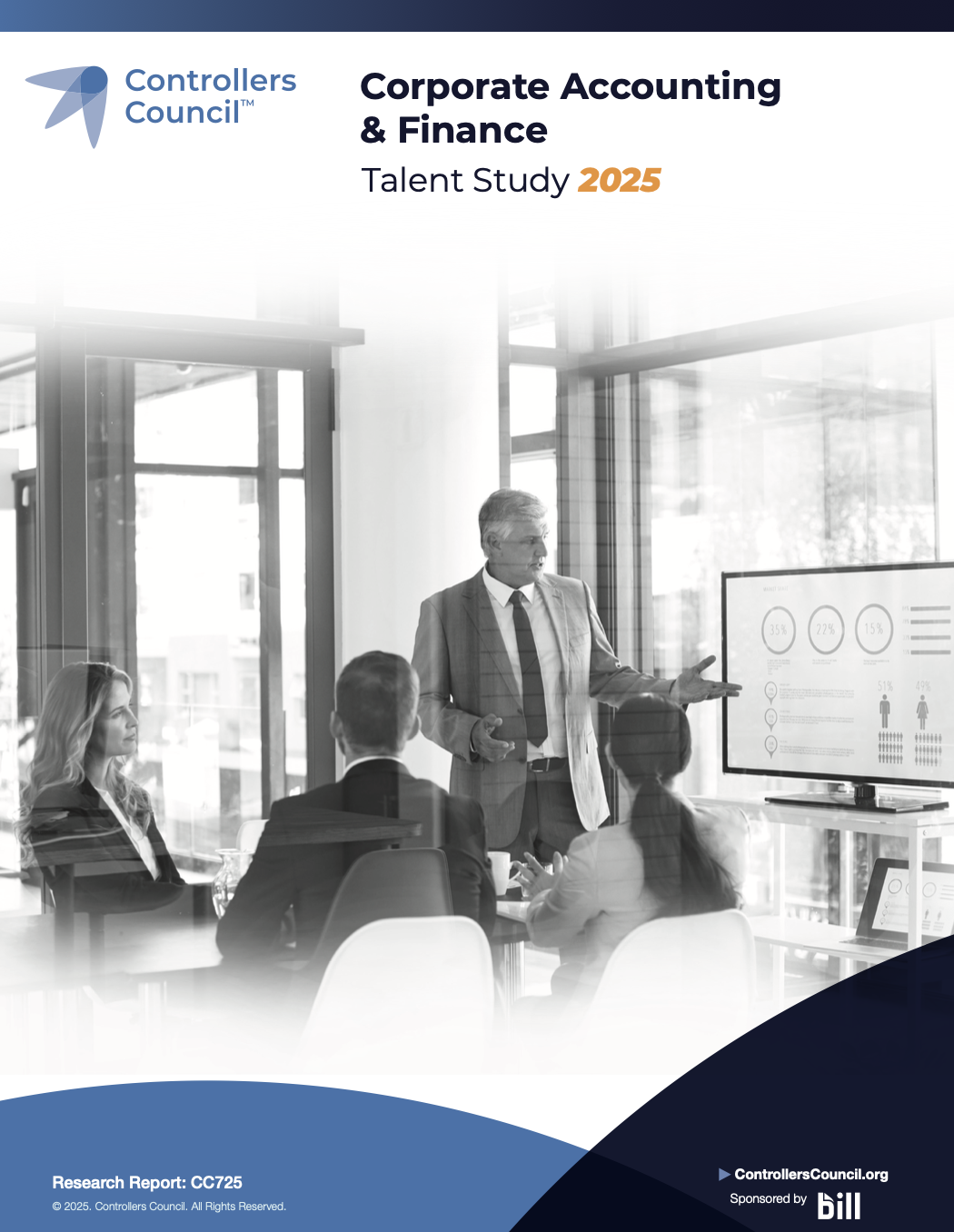Controllers Council recently held a panel discussion on Friend or Foe? The CFO’s Relationship with AI, sponsored by Yooz.
Yooz is cloud-based procure-to-pay or P2P automation, infusing intelligence into the accounts payable process.
Our expert panelists include Jay Deubler, Rhonda Sauer, and Brian Bentley. Jay Deubler is Chief Revenue Officer at Yooz and has spent his career in accounting software at brands such as Avalara, Sage, and Infor. Rhonda Sauer is Manager of CAAS, client accounting as a service solutions at UHY Advisors, which is also a CPA firm. And Brian Bentley is a Corporate Finance Consultant at AcctZen. He is a CPA and a former Controller.
Following are key takeaways to this discussion. If you are interested in learning more, view the full webinar archive video here.
Neil Brown:
As we know, the Office of the CFO and the Controllership is challenged with staff and skill shortages, even though the great resignation might be over and unemployment just recently it was reported at record lows, accounting and corporate finance shortages persist and will likely worsen.
The pandemic created remote and hybrid work environments (hybrid a combination of onsite and remote), and new acronyms like RTO or return to office. With this backdrop, the traditional roles and responsibilities of CFOs and Controllers included financial reporting, budgeting, planning, and “some” talent management. New roles have evolved to incremental HR duties, technology management, possibly managing IT for smaller firms, and more.
What is your perspective on how CFOs, Controllers and their staffs’ roles have changed during and after the pandemic?
Rhonda: I would say although it’s something that CFOs and controllers do regularly, the preserved cash, ensuring companies stay afloat is probably one of the biggest items that we saw. Mainly with all the uncertainty that was going on during COVID, whether you were even going to have a customer that could come to your office or come visit a restaurant. I mean, most businesses were looking at cash flow would be the key issue.
Brian: I think cashflow. I think training is another thing that’s really changed a lot and the pandemic and everybody working remote is really highlighted. Who’s more efficient as a manager, who’s a little bit more hands-on because it’s a lot harder, especially when everybody’s remote, be able to manage everybody and be hands-on directly all the time. Bringing on new employees, training new employees who you may never get to meet in person is a lot more challenging than doing it in person.
Jay: My perspective is cashflow continues to always be forefront on every accounting professional’s mind. But more importantly, we also see that technology’s changing. We’re seeing all the SaaS solutions becoming so much more prevalent and we’re seeing the workforce change. And in some of the studies and some of the conversations we’re having, we’re seeing more accounting professionals, controllers and CFOs being concerned about leadership and solving the problem of the dynamic and changing workforce more than anything else.
What are your observations regarding accounting talent shortages?
Brian: The training aspect where if you are working remotely, it’s harder to get that face-to-face feedback. And even once you get the face-to-face feedback or if you can meet and train in person, just those regular reviews, I think it’s important that to me anyway, I know this kind of touches on some stuff we’re going to discuss later, but a hybrid environment is a little bit more efficient for teams to be able to get that face-to-face feedback. At least I know with my style, I prefer that face-to-face or at least a video call, but even those aren’t quite the same thing.
Rhonda: Because I’ve been working remotely since 2010. For me, things really didn’t change other than the fact that the people I was working with were now remote. And it was nice to be able to see the change in business where it was really allowing for people to work from home or hybrid. And I was an independent consultant when I started working remotely by myself. Going back to a company when I joined UHY three years ago, I will say that hybrid would be my choice if the office was in Atlanta here for me because I do think there’s a lot to be said for really interacting with people in the office. And I have employees in Michigan that I see maybe quarterly. It might be nice to see them a little more often.
Jay: The shortage that we’re seeing is just coming from the changing this workplace 3.0 that several HR professionals are talking about. We’re seeing that employee engagement is changing and tools are needing to help come up and cover where we’re not able to find talent. And I think what we’ve seen during the pandemic is we’ve seen an acceleration in technology that’s been able to augment the accounting world.
What is your company policy regarding remote, onsite, or hybrid work environments?
Jay: At Yooz, we’re located out of Dallas, and we have a hybrid environment where we have teams in, minimum of one day a week. We do have a handful of people that are in every day, but typically we are seeing one day a week and then the balance being remote. We’re finding it to be the best of both worlds for our employees. And our biggest concern is how do we retain our great employees? And it’s giving them that balance along with providing the environment for growth as well. And we find that growth really happens when we’re all together. So, we’re a hybrid and we’ll continue to do that as we continue to grow. We’ve talked about as a leadership team going from one day to two days in office and I wouldn’t be surprised to see that happen by the beginning of the new year.
Rhonda: I was going to say with UHY, we have offices all over the place. Most of the people generally are doing hybrid. There’s a couple of groups like the UHY Consulting Group based out of Atlanta, where I’m at, they are fully remote except for the admin and leadership team who was in the office, and they really have hoteling.
Brian: The bulk of my clients are hybrid. We’re a hybrid. And so generally for me it’s like one day a week I’ll be in the office. The other four days, I’m working remotely or on a client site. I enjoy the hybrid. I think most of the clients who do that have a two day a week is what I’ve seen a lot. Two days a week in the office, three days out of the office. I think it gives the employees a lot of flexibility too, especially to be able to work hours that may be a little bit easier for them.
What technologies are being adopted by CFOs and controllers due to some of the challenges discussed?
Rhonda: I would say because the role I have at UHY is to help our clients find out what their next software is going to be, because most of them are on desktop software and we’re helping move them to the cloud. They generally want something on the cloud. SaaS is it. I mean, that is the only way they’re going to go. We still have clients who have not made that move. But starting with ERPs usually is where they’re starting. And then as we implement the ERPs, we move into AP, usually is the first choice, mainly because AP is so easy to automate, and it is such a low hanging fruit. At many of our clients’ offices that have a lot of AP, it is really an easy move to automate the AP. You can even do that with the desktop software because I know Yooz does integrate with some of those desktop software as well. So, you can automate AP even if you haven’t gone to the cloud with ERP systems.
Brian: I think AP, like Rhonda said, and also there’s some basic analysis, basic FP&A analysis where you just plug in and AI can generate and look at your ratios and just give you a high level overview of health of financials. Especially if you’re looking to grow, you’re looking for companies to acquire, the AI, you can plug in just massive quantity of data to look at competitors and see where they are against you. But AP is the biggest area we’ve seen an increase in AI usage and then a little bit of just kind of basic market analysis.
Jay: You’re probably going to be surprised when I tell you that we typically see it in AP, but we also see it in AR as well. But AP tends to be where we see it start, the AI journey within the accounting group. As everybody’s really looking to grow to a completely digitized solution, we’re seeing more and more companies move to SaaS, and as they do, we see them looking to automate as much as possible. Again, accounting hasn’t changed in so long. Some of those basic functions where AI is now caught up with what the human eye used to do, being able to discern an invoice and be able to read it like the human eye wasn’t available a handful of years ago.
Pros and cons of AI in corporate finance and accounting
- Pro: Having eyes on a lot more things and being able to manage much more by exception
- Pro: AI may be better than a human at forecasting
- Con: Data Security
- Con: AI is only as good as the data you feed it, and if you feed it bad data, your AI is going to make bad decisions
To view the complete webcast, download full webinar here.
ABOUT THE SPONSOR:
Yooz was created in 2010, and we give our customers a fully automated AP tool that’s flexible to fit companies of any size. It’s easy to implement and scalable as you grow. Or as an all-in-one solution, we use AI to eliminate a lot of the manual processes that your AP departments face. Thanks to the cloud, you can access and share data in real time anywhere and give you insights to your cashflow. Yooz product is fully customizable with workflows and were tailored to meet the needs of your business throughout the entire AR and AP automation solution.




